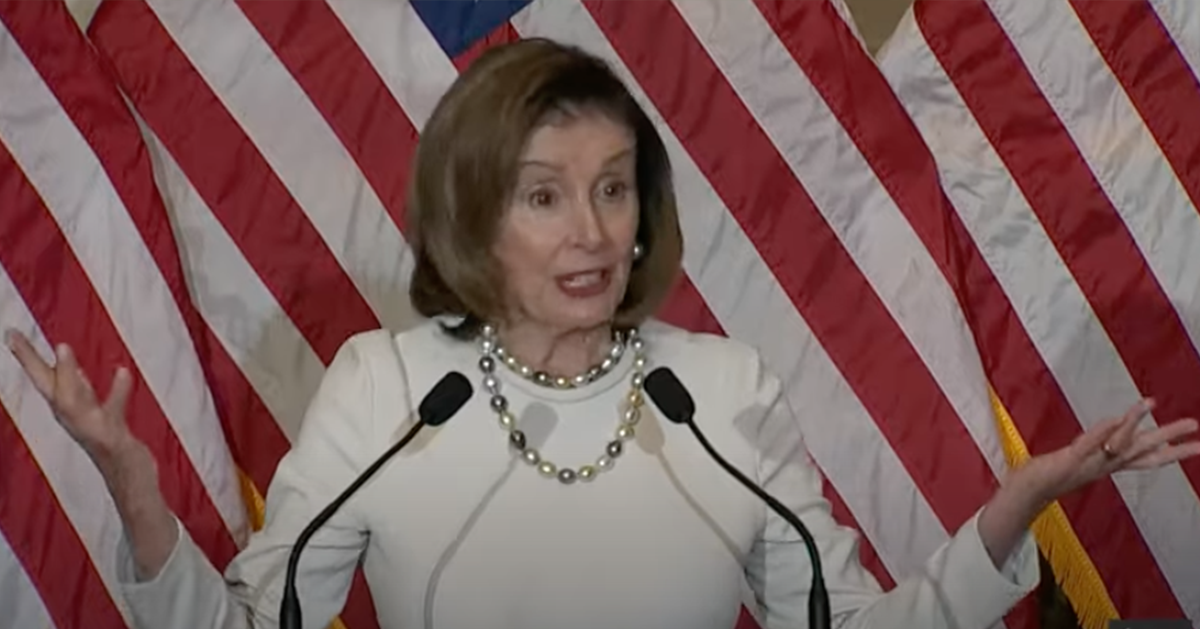House Republicans Introduce Bill to Fund Government Through March
House Speaker Mike Johnson introduced a new continuing resolution to prevent a looming partial government shutdown. The bill, set to fund the federal government through March, includes a controversial voter ID provision that Senate opposition has already raised concerns about.
Republicans presented the resolution, which extends federal funding and introduces the Safeguard American Voter Eligibility (SAVE) Act, sparking a political clash over voter identification requirements, Just The News reported.
On Friday, Johnson officially unveiled the proposed legislation, addressing the urgent need to avoid a government shutdown. Congress has yet to pass the nine necessary appropriations bills required to keep government agencies running by the October 1 deadline. The continuing resolution would maintain current federal funding levels as a temporary measure, giving lawmakers time until March 28 to pass more comprehensive spending bills.
Bill Tied to Voter ID Legislation
A key provision in the resolution, the SAVE Act, has sparked criticism from Senate Democrats, setting up a potential standoff between the two chambers. The House previously passed the SAVE Act in July, requiring voters to prove U.S. citizenship to vote in federal elections. Republicans largely support this measure, arguing it is necessary to safeguard the integrity of elections.
“Today, House Republicans are taking a critically important step to keep the federal government funded and to secure our federal election process,” Speaker Johnson said during the announcement of the resolution. He emphasized that the resolution ensures only American citizens can participate in U.S. elections, framing the proposal as essential to maintaining trust in the electoral system.
Democratic Opposition to Voter ID Proposal
Senate Democrats strongly oppose the inclusion of the SAVE Act in the continuing resolution. They argue that requiring voters to prove citizenship is unnecessary, as current laws already prohibit non-citizens from voting in federal elections. Democrats view the inclusion of this provision in a must-pass spending bill as a politically motivated maneuver that could disenfranchise eligible voters.
The voter ID requirement, a longstanding point of contention between the two major political parties, has resurfaced with this resolution. Republicans argue that stricter ID laws would prevent voter fraud, while Democrats maintain that such laws could disproportionately impact minority and low-income voters.
Government Shutdown Concerns Loom
The fast-approaching deadline to fund the government creates urgency for the continuing resolution. Without this temporary funding measure, the federal government risks shutting down as early as October 1. A shutdown could suspend various government services, furlough federal workers, and disrupt public programs.
Johnson emphasized the importance of addressing both government funding and election integrity issues at the same time. “Congress has a responsibility to do both,” he said, highlighting that his proposal aims to tackle both challenges simultaneously.
Continuing Resolution Faces Uncertain Future
House Republicans have coalesced around the SAVE Act, but the resolution's future remains uncertain. The inclusion of the voter ID provision casts doubt on the bill's passage in the Senate, where Democrats hold a majority. Many Senate Democrats have vowed to block any government funding bill that includes the SAVE Act, arguing that it unfairly politicizes what should be a straightforward fiscal measure.
If the Senate rejects the continuing resolution, Congress will need to quickly find an alternative to avoid a shutdown. Lawmakers face a deadline at the end of September, pressuring both parties to negotiate a compromise.
Funding Through March Sparks Debate
Lawmakers debate the proposed extension of government funding through March. Some believe extending the deadline by six months gives Congress more time to carefully consider the appropriations bills needed to keep the government running. Others argue that such an extension merely delays inevitable political battles over funding priorities.
Johnson and other Republican leaders view the temporary funding measure as a necessary step to prevent immediate chaos while addressing election integrity concerns through the SAVE Act. However, Democrats argue that Congress should debate the issue of voter identification separately, without tying it to the broader issue of government funding.
Republicans Push for Urgency in Passing Bill
Johnson has conveyed a clear message: the continuing resolution aims to keep the government open while also ensuring that only U.S. citizens participate in elections. He and his Republican colleagues believe that these two goals are not mutually exclusive and should be addressed together.
“Congress must ensure that only American citizens can decide American elections,” Johnson said, making a direct appeal to voters who support stricter voter ID laws. The Republican majority in the House has framed the issue as both a matter of national security and electoral fairness.
Future of the Resolution Remains Unclear
Despite Republican confidence in the House, the path forward for the resolution remains unclear. Given the narrow Democratic majority in the Senate, the bill’s passage in its current form faces significant uncertainty. Furthermore, Senate Majority Leader Chuck Schumer has already indicated that Democrats will not support a bill that includes the SAVE Act.
As the October 1 deadline rapidly approaches, both sides must work quickly to avoid a government shutdown. Whether the two chambers can find common ground on the issue of voter ID remains uncertain, but with the clock ticking, lawmakers are under increasing pressure to reach an agreement before the federal government runs out of funding.
In the coming days, the continuing resolution will likely face intense debate, as Republicans and Democrats attempt to address their differences over both government funding and election integrity.




